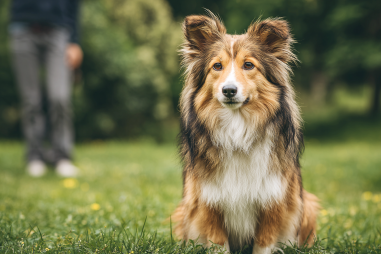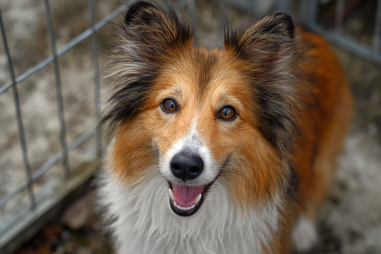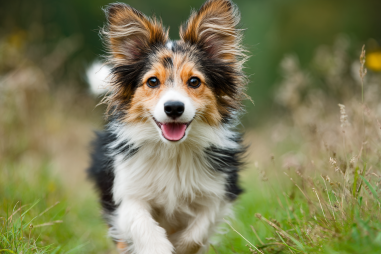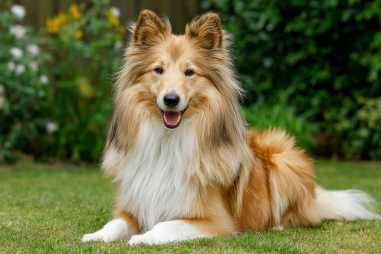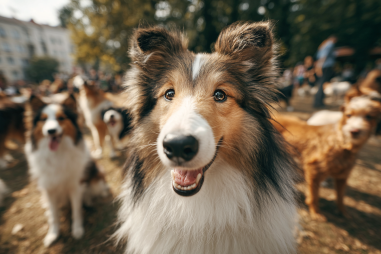Bringing home a Shetland Sheepdog puppy is one of the most joyful experiences a dog lover can have. Known for their intelligence, loyalty, and playful nature, Sheltie puppies quickly become cherished members of the family. However, like all puppies, they require dedicated care and attention in their early weeks to grow into healthy, well-adjusted adults. From preparing your home to recognizing health signals, these essential Shetland Sheepdog puppy care tips will guide new owners through the rewarding journey ahead.
Preparing Your Home for a Sheltie Puppy
Before your Shetland Sheepdog puppy arrives, it’s important to create a safe and welcoming environment. Puppies are naturally curious and prone to exploring every nook and cranny, so “puppy-proofing” your home is essential. This includes securing electrical cords, putting away small objects that could be swallowed, and blocking off areas that may be hazardous. Designate a comfortable space with a cozy bed or crate where your puppy can retreat and feel secure.
Having all the necessary supplies ready ahead of time makes the transition smoother. Stock up on puppy food formulated for small to medium breeds, water and food bowls, chew toys suitable for teething, grooming brushes designed for Shelties’ double coat, a collar with an ID tag, and training pads if you plan to use them for housebreaking. Creating a calm and structured environment helps your new puppy settle in and reduces stress for both of you.
Proper Feeding and Nutrition for Puppies
Nutrition plays a vital role in your Sheltie puppy’s development. Feeding a high-quality puppy food designed specifically for small or medium breeds ensures they receive the right balance of proteins, fats, vitamins, and minerals. Sheltie puppies have moderate energy needs but do require nutrient-dense meals to support their rapid growth and active nature.
Most Sheltie puppies do well with feeding schedules of three to four meals per day until they are around six months old, then transitioning to two meals daily. Always provide fresh water and avoid giving your puppy table scraps or foods that are toxic to dogs, such as chocolate, grapes, or onions. Consult your veterinarian for recommended portion sizes and food brands tailored to your puppy’s unique needs.
Vaccination and Vet Care Schedule
Early veterinary care is crucial to protecting your Shetland Sheepdog puppy from common illnesses and ensuring a healthy start. Puppies typically begin their vaccination series at six to eight weeks old, receiving vaccines that protect against distemper, parvovirus, adenovirus, and parainfluenza. Your vet will also schedule boosters every few weeks until your puppy is about 16 weeks old.
Aside from vaccinations, regular vet visits include parasite prevention, dental health checks, and growth monitoring. Discuss spaying or neutering options with your vet and any breed-specific health concerns. Keeping a detailed vaccination and health record allows you to track your Sheltie puppy’s progress and provides peace of mind.
Early Socialization Strategies
Socialization is one of the most important factors in raising a confident and well-behaved Sheltie. Early positive exposure to a variety of people, environments, sounds, and other animals helps reduce fear and behavioral issues later in life. At around eight weeks old, begin gradually introducing your puppy to new experiences while ensuring they’re safe and not overwhelmed.
Enroll in puppy socialization classes if available, and invite friends and family to meet your puppy in a calm setting. Encourage gentle play and reward good manners with praise or treats. Shelties, being herding dogs, can sometimes be reserved or shy, so patient, positive socialization is key to nurturing a happy companion.
Basic Training Introduction
Starting training early establishes good habits that make life easier and more enjoyable for both you and your Sheltie. These intelligent dogs learn quickly, making the first few months ideal for introducing commands like sit, stay, come, and leash walking. Use gentle, consistent methods and plenty of positive reinforcement such as treats, toys, and affection.
Housebreaking is also a priority during the first weeks. Setting a regular schedule for bathroom breaks, rewarding your puppy immediately after they go outside, and supervising indoors helps prevent accidents. Remember, patience and consistency are your best tools during training. Short, frequent sessions keep your puppy engaged without feeling overwhelmed.
Safe Play and Exercise
Shetland Sheepdogs are active and playful, even as puppies, so providing safe play opportunities is essential to prevent boredom and channel their energy constructively. Choose toys designed for puppies that are durable and size-appropriate. Avoid small items that could be swallowed or easily broken.
Limit exercise sessions to short periods appropriate for a puppy’s age and growing joints. Gentle play in a secure yard or indoor space suits young puppies best. As they grow, gradually increase activity to match their stamina. Interactive games like fetch and basic agility activities stimulate their mind and body while strengthening your bond.
Grooming Basics for Puppies
Shetland Sheepdogs have a beautiful double coat that requires regular grooming to stay healthy and mat-free. Starting grooming routines early helps your puppy get used to being handled and makes coat care an enjoyable experience. Brush your Sheltie’s fur two to three times weekly using a slicker brush or grooming rake to prevent tangles and remove loose hair.
Bathing should be done only as needed using gentle puppy shampoos, as frequent baths can dry out their skin. Don’t forget routine care such as nail trimming, ear cleaning, and dental hygiene. Early introduction to these grooming habits promotes good health and strengthens the trust between you and your puppy.
Recognizing Signs of Health Issues
Being attentive to your Sheltie puppy’s health helps catch potential problems early. Watch for signs such as lethargy, loss of appetite, vomiting, diarrhea, coughing, sneezing, or unusual behavior changes. Any limping or difficulty moving should be addressed promptly due to their sensitive joints.
Regularly check for skin irritations, eye discharge, and changes in coat condition. Early detection and veterinary consultation can prevent many common puppy ailments from worsening. Always err on the side of caution and seek professional advice if you notice anything abnormal.
Supporting Your Sheltie’s Growth
Watching your Shetland Sheepdog puppy grow into a lively, smart dog is incredibly rewarding. Keep track of key milestones such as weight gain, teething stages, social skills development, and training progress. Celebrate achievements and stay patient through challenges — each puppy develops at their own pace.
By providing thoughtful care, consistent training, and plenty of love, you’ll set your Sheltie up for a happy, healthy life by your side. Remember, the early months lay the foundation for everything to come, so enjoy every step of this wonderful journey together.


